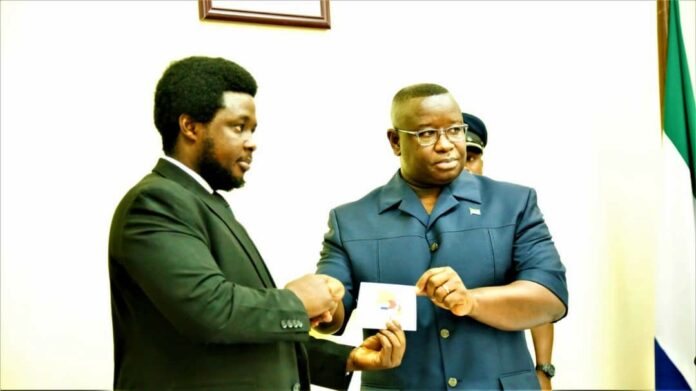By: Ibrahim Mansaray, reporter
On Wednesday 24th January 2024, the Anti-Corruption Commissioner addressed the press on the work of the commission. Francis Ben Kaifala gave updates on various cases the commission is working on, prominent among which was that of the Clerk of Parliament Hon. Paran Tarawally. According to him, in respect of the allegations levelled against the clerk that he recruited his wife and was on salary for 19 months without showing up for work, the commission invited both accused persons and are now on bail with a percentage of the money already recovered by the commission.
The ACC seems to be making progress on the case but one wonders whether the matter has been dealt with as seriously as it ought to be. There have been wide calls for Tarawally to step aside whilst his investigations go on, but the commission is seemingly dragging its feet to yield to the demands of citizens, including Civil Society Groups and the main opposition All People’s Congress party whose big guns have come under fire recently for corruption.
Before the press conference, Kaifala told Africa Young Voices (AYV) TV that they have yet to ask the clerk to step aside because the threshold of doing so has not been met. In this case, the clerk has to be charged to court before that happens. And before that happens, a lot of investigations have to be carried out. Again, you wonder why the ACC has to go to that length when all the evidence is before them. The leader of the main opposition in Parliament Hon. Abdul Kargbo argues that the fact that the wife of the clerk, Abibatu Tarawally, has agreed to refund the money she was paid in salary, amounts to an “admission of guilt”. This begs the question what else does the ACC need before the clerk and his wife are charged to court.
In Wednesday’s press conference, Kaifala said that he had a meeting with the president the previous day and he (the president) will take “administrative action” on the clerk’s corruption allegation. This puts to question the relevance of the ACC and whether it can act on its own. If the president needs to take action on corruption, then why does ACC exist? Parts of its powers are to prevent, investigate, prosecute and punish corruption and corrupt practices. But clearly in this case, the commission’s delay in prosecuting the clerk and the commissioner’s resolve to wait for President Bio to take action seems as if the powers conferred on the ACC have been waived in respect of the president who initially delegated the powers to Kaifala.
Everything happening now opens the room for many questions. The ACC we know has been independently handling different cases and taking actions without the president’s involvement. In this case, the president is said to be involved and he will have to take “administrative action”. Why? Is this a special case? Are there “sacred cows” in the corruption fight? Does the president doubt the competence of the commissioner? The answers one will certainly get for these questions is a ‘no’ from the commissioner. This leaves the public in need of more explanation which can only come from the commission.
Certainly, no one questions the powers of the president, but this case puts everyone under a litmus test. The public eagerly awaits to see whether the commission will independently handle this case, adhering to the law or the president will usurp the powers he gave to the Anti-Corruption Commission. If the latter eventually happens then the very existence of the ACC will be undermined, leaving the public questioning its relevance.
We understand there is an issue in Parliament which warranted the president’s intervention based on party lines, but utmost caution ought to be taken to prevent it from eclipsing a much bigger public interest story. As Commissioner Kaifala describes corruption as an “emergency”, the need to put that into action is at hand. Like every other case has been dealt with, this too needs all the seriousness it can get to avoid complicity and or undermining the independence and integrity of the anti-graft agency.


